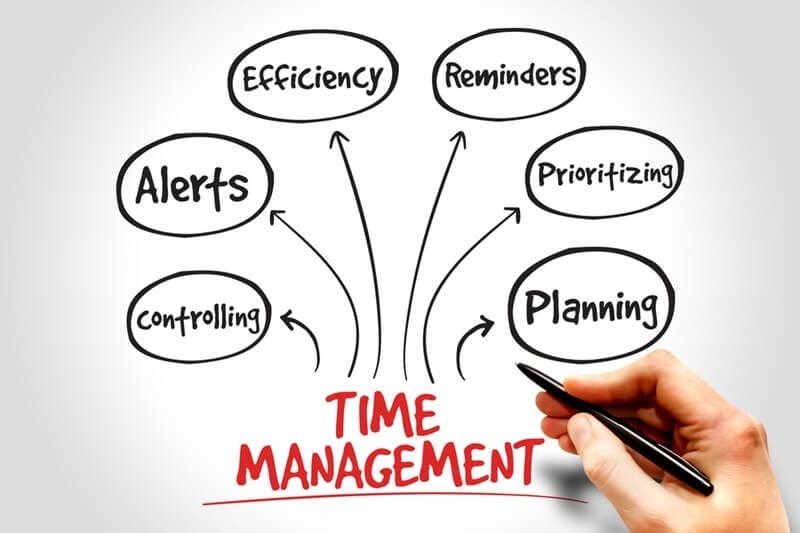
Time management techniques are the foundation of personal balance and professional achievement. Effective techniques come into play in everything from getting greater job outcomes to keeping up with a heavy schedule or just making more time for individual life. Successful scheduling methods and productivity time blocking can significantly enhance daily productivity. Effective time management and daily productivity tools boost productivity and lessen stress and burnout.
This blog will deconstruct tested methods, practical tools, and actionable advice to guide you in mastering time, wisely prioritizing tasks, and developing habits that lead to continued success.
Fundamentally, time management is not about doing more in a day; rather, it is about doing the right tasks at the right time. By implementing time management strategies, you will:
In today's world, you are bombarded with distractions: e-mail, meetings, and unlimited notifications. If you do not have a formal strategy for managing your time (at work), you will be carried away by urgent, but unimportant tasks. This is why time management strategies are worthwhile, especially when trying to be more effective and successful.

Before exploring specific tools and time management techniques, we should recognize the core principles:
These principles create a foundation for effective time management strategies and improve daily productivity.
One of the most effective time management techniques is practicing good scheduling skills. Rather than being reactive to the day, scheduling puts you in the driver's seat. Here are some essential approaches:
Divide your day into time blocks and assign individual tasks to each block. This will limit multitasking and improve focus.
Batch similar activities—such as responding to emails or taking calls—into one block of time. This practice helps reduce task switching.
Do it now if it can be done in less than two minutes. This prevents tiny tasks from adding up.
Look at your weekly calendar for wastefulness and distractions. Make changes.
These habits, when used consistently, dramatically improve productivity.
Of all the time management techniques, productivity time blocking is the easiest and most effective to implement. This is how it works:
For instance, you may allocate 9–11 AM for idea generation, 11–12 PM for meetings, and 1–3 PM for implementation. This gives you a laser focus, making completing complex tasks easier.
Time blocking is especially effective when combined with smartly prioritizing tasks, which helps you complete the most high-value tasks.
Managing time gets frustrating at work because meetings, emails, and interruptions always come up and gum up productivity. The following actionable tasks will help:
When time management in the workplace becomes conscious, daily productivity soars.
Daily time efficiency doesn't involve revamping your practice. Small regular changes yield huge dividends.
Maximizing your time efficiency throughout the day allows opportunities for professional accomplishments and personal fulfillment.
Not all activities are the same. Scheduling activities correctly is at the heart of time management techniques. Techniques that can help are:
To identify and achieve your outcome, list jobs in one of four categories: essential and urgent, important but not urgent, urgent but not necessary, or neither. Work off the first two categories.
Categorize your outcomes/jobs from A through E. A will be high-priority, and E will be the least priority, or drop it if at all possible. This will guide you in expending your energy wisely.
Organize your performance goals into Specific, Measurable, Achievable, Relevant, and Time-bound actions. This will help clarify and simplify goal completion.
By thinking ahead, you can ensure that your time has the potential to make meaningful performance progress rather than being engaged in reactive busyness.
Time management can often be supported through technology.
These apps augment effective scheduling systems and facilitate time at work.
Even with a solid system, obstructions arise. Here is how to break through:
Breaking through these obstructions facilitates rotation of time management activities for the long haul.
Time management is not a quick fix; it involves creating long-term habits. Here is how to achieve results:
Establishing habits around daily time efficiency and intelligent prioritization ultimately replicates and builds upon itself over time, allowing faster progress.
Time mastery is not all about getting things done but about living a life of purpose, balance, and completion. Through clever scheduling techniques, effective productivity time blocking, and intelligent task prioritizing, you can increase your daily time efficiency, lower your anxiety, and, ultimately, deliver consistent results.
The right methods make every minute productive, whether in your workplace or when planning personal goals. It's simple: Start small, stay consistent, and turn your time into your biggest asset.
This content was created by AI